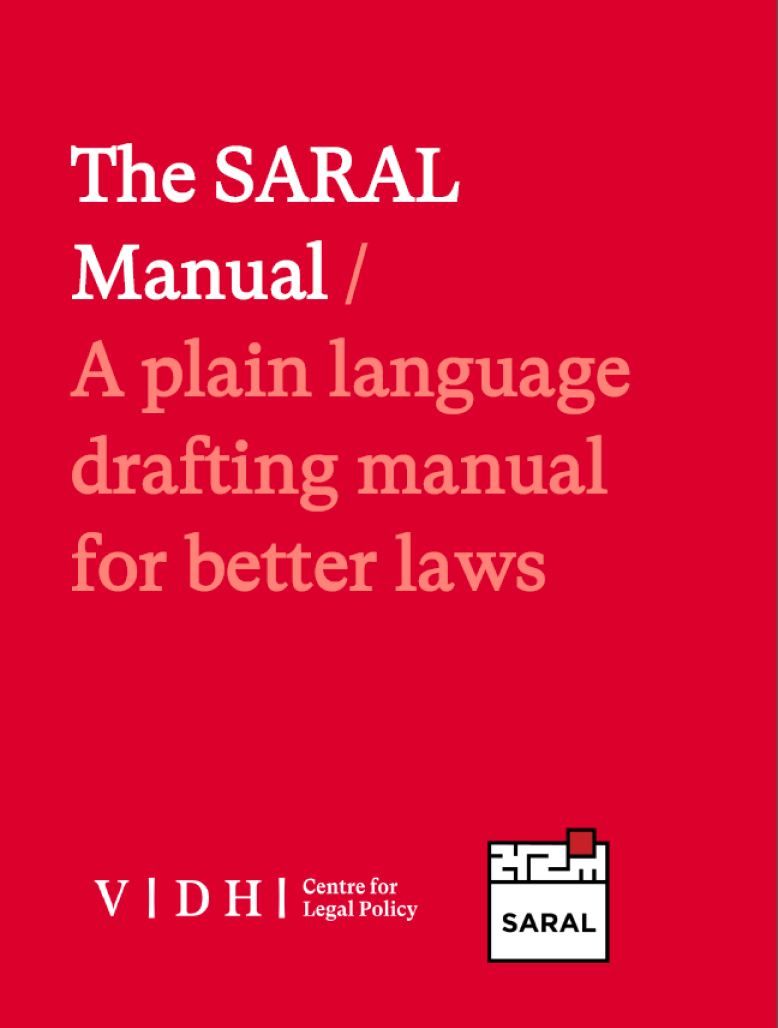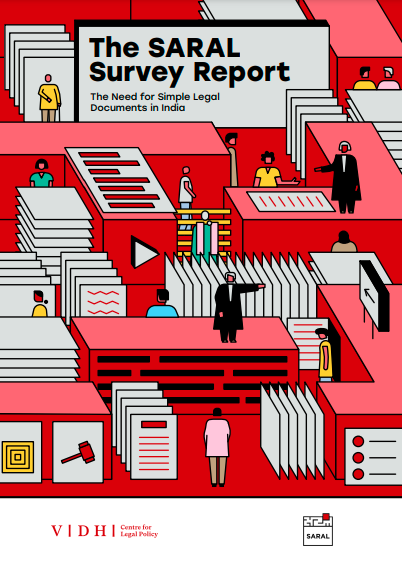
The Manual lays down SARAL principles that may utilised to draft comprehensible laws.
The drafting principles have been bucketed under four categories: Simple, Accessible, Rational and Actionable along with illustrative examples and action points. The Manual ends with a checklist for drafters which will provide a template for the simplification of existing laws and the drafting of future laws.

Laws and other legal documents must be comprehensible to those who are impacted by them. While the case for simple drafting of legal documents in India has been made by several stakeholders including politicians, judges, and lawyers, India has lacked a dedicated effort to understand public perspectives on this issue—until now. The SARAL Initiative has conducted India’s first survey to gauge public opinion on the need for simplicity in law.
Our survey covered more than 500 stakeholders across urban and semi-rural areas in three locations: Delhi, the NCR and Bengaluru. Drawing from diverse genders, ages, education levels, and jobs, it captures voices across socioeconomic divides for inclusive insights.
The results reveal a clear preference for accessible legal documents across both groups. Complex legal documents erode trust in the legal system as people cannot understand and enforce their rights. There is an urgent need to make legal documents simple and accessible to empower citizens and bolster democratic engagement.